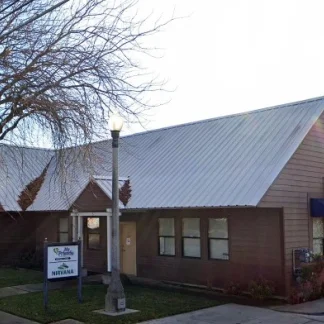Sierra Vista Child and Family Services - Sierra Drive
Sierra Vista Child and Family Services Sierra Drive, located in Modesto, Califor...
Located in Modesto, California, Nirvana Drug and Alcohol Institute Outpatient is an alcohol and drug rehab center that provides addiction treatment services to adult men and women seeking recovery. Their outpatient program is provided through two different options for treatment.
The intensive outpatient program meets for a total of twelve hours each week. Clients will engage in group therapy for three hours at a time, on four different days each week. If a person needs a higher level of care, they may be referred to Nirvana Drug and Alcohol Institute’s outpatient program.
The outpatient program meets for a total of three hours each week. Clients may choose from morning or evening sessions for their groups.
The aftercare program is a maintenance program that allows clients to meet their recovery needs through individual therapy or self-help groups.
Nirvana Drug and Alcohol Institute Outpatient accepts most insurance plans, including Magellan, United Healthcare, HCSC, Tricare, ComPsych, Beacon, Cigna, Human, Ambetter, and more. Out-of-network benefits may vary, so it’s important to verify coverage with the provider.
Contact us for more information: (209) 579-1151

Connect with Nirvana Drug and Alcohol Institute - Outpatient by calling their admissions team directly.
(209) 579-1151 Website Get DirectionsThe Substance Abuse and Mental Health Services Administration (SAMHSA) is a branch of the U.S. Department of Health and Human Services. Established in 1992 by congress, SAMHSA's mission is to reduce the impact of substance abuse and mental illness on American's communities.
SAMHSA Listed: Yes
Cognitive Behavioral Therapy (CBT) is a therapy modality that focuses on the relationship between one's thoughts, feelings, and behaviors. It is used to establish and allow for healthy responses to thoughts and feelings (instead of unhealthy responses, like using drugs or alcohol). CBT has been proven effective for recovering addicts of all kinds, and is used to strengthen a patient's own self-awareness and ability to self-regulate. CBT allows individuals to monitor their own emotional state, become more adept at communicating with others, and manage stress without needing to engage in substance abuse.
Group therapy is any therapeutic work that happens in a group (not one-on-one). There are a number of different group therapy modalities, including support groups, experiential therapy, psycho-education, and more. Group therapy involves treatment as well as processing interaction between group members.
In individual therapy, a patient meets one-on-one with a trained psychologist or counselor. Therapy is a pivotal part of effective substance abuse treatment, as it often covers root causes of addiction, including challenges faced by the patient in their social, family, and work/school life.
Life skills trainings involve all the skills a person must have in order to function successfully in the world. These include time management, career guidance, money management, and effective communication. Truly successful addiction recovery is based on the ability to not only live substance-free, but to thrive. Life skills teaches the practical necessities of functioning in society, which sets clients up for success in life, and therefore sobriety.
Group therapy is any therapeutic work that happens in a group (not one-on-one). There are a number of different group therapy modalities, including support groups, experiential therapy, psycho-education, and more. Group therapy involves treatment as well as processing interaction between group members.
In individual therapy, a patient meets one-on-one with a trained psychologist or counselor. Therapy is a pivotal part of effective substance abuse treatment, as it often covers root causes of addiction, including challenges faced by the patient in their social, family, and work/school life.
Life skills trainings involve all the skills a person must have in order to function successfully in the world. These include time management, career guidance, money management, and effective communication. Truly successful addiction recovery is based on the ability to not only live substance-free, but to thrive. Life skills teaches the practical necessities of functioning in society, which sets clients up for success in life, and therefore sobriety.
In individual therapy, a patient meets one-on-one with a trained psychologist or counselor. Therapy is a pivotal part of effective substance abuse treatment, as it often covers root causes of addiction, including challenges faced by the patient in their social, family, and work/school life.
Life skills trainings involve all the skills a person must have in order to function successfully in the world. These include time management, career guidance, money management, and effective communication. Truly successful addiction recovery is based on the ability to not only live substance-free, but to thrive. Life skills teaches the practical necessities of functioning in society, which sets clients up for success in life, and therefore sobriety.
Life skills trainings involve all the skills a person must have in order to function successfully in the world. These include time management, career guidance, money management, and effective communication. Truly successful addiction recovery is based on the ability to not only live substance-free, but to thrive. Life skills teaches the practical necessities of functioning in society, which sets clients up for success in life, and therefore sobriety.
Sierra Vista Child and Family Services Sierra Drive, located in Modesto, Califor...
Alano Club of Modesto, located in Ceres, California, is part of the Alcoholics A...
Valley Sober Living, located in Ceres, California, offers a supportive and struc...
The Last Resort, located in Modesto, California, is an outpatient alcohol and dr...